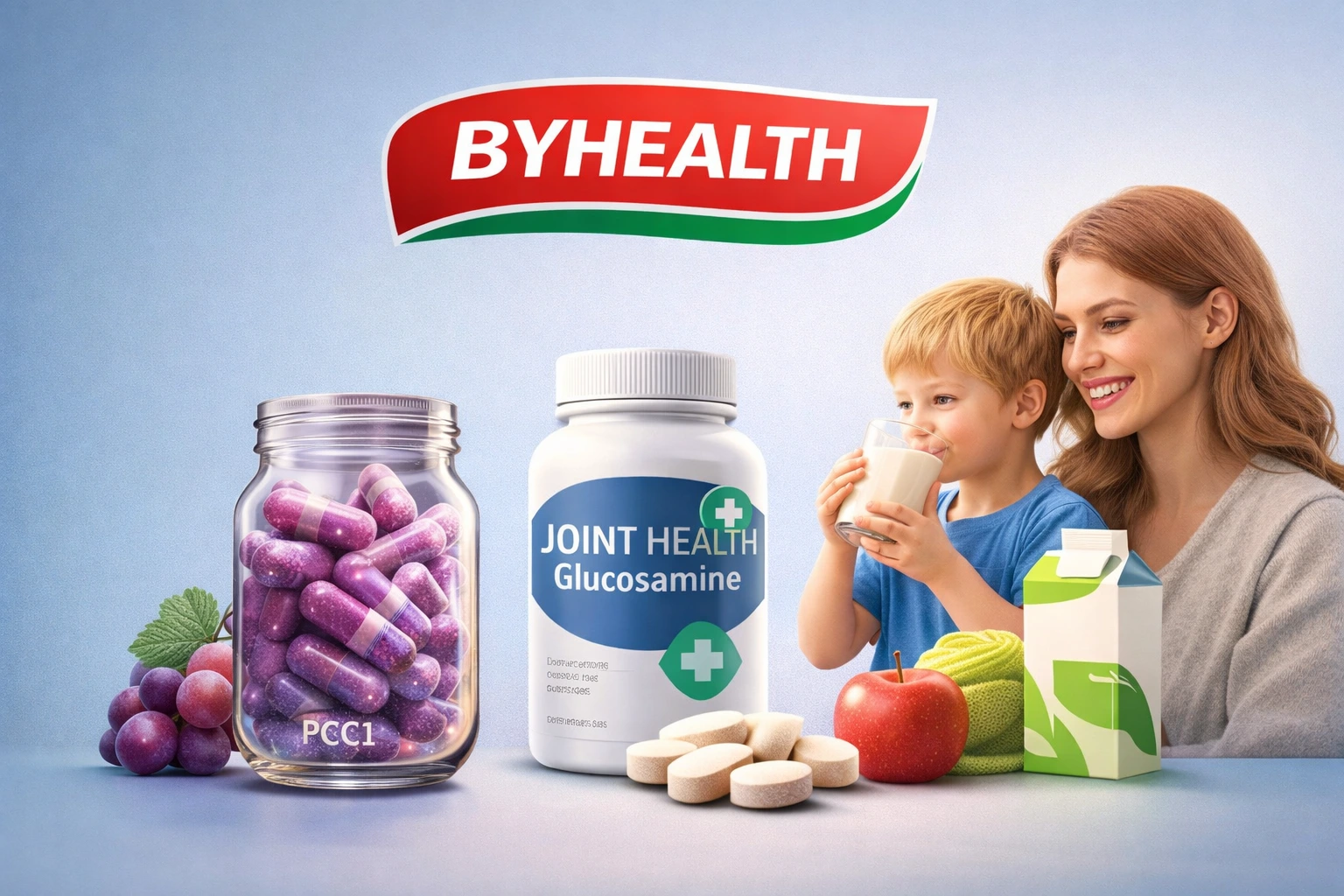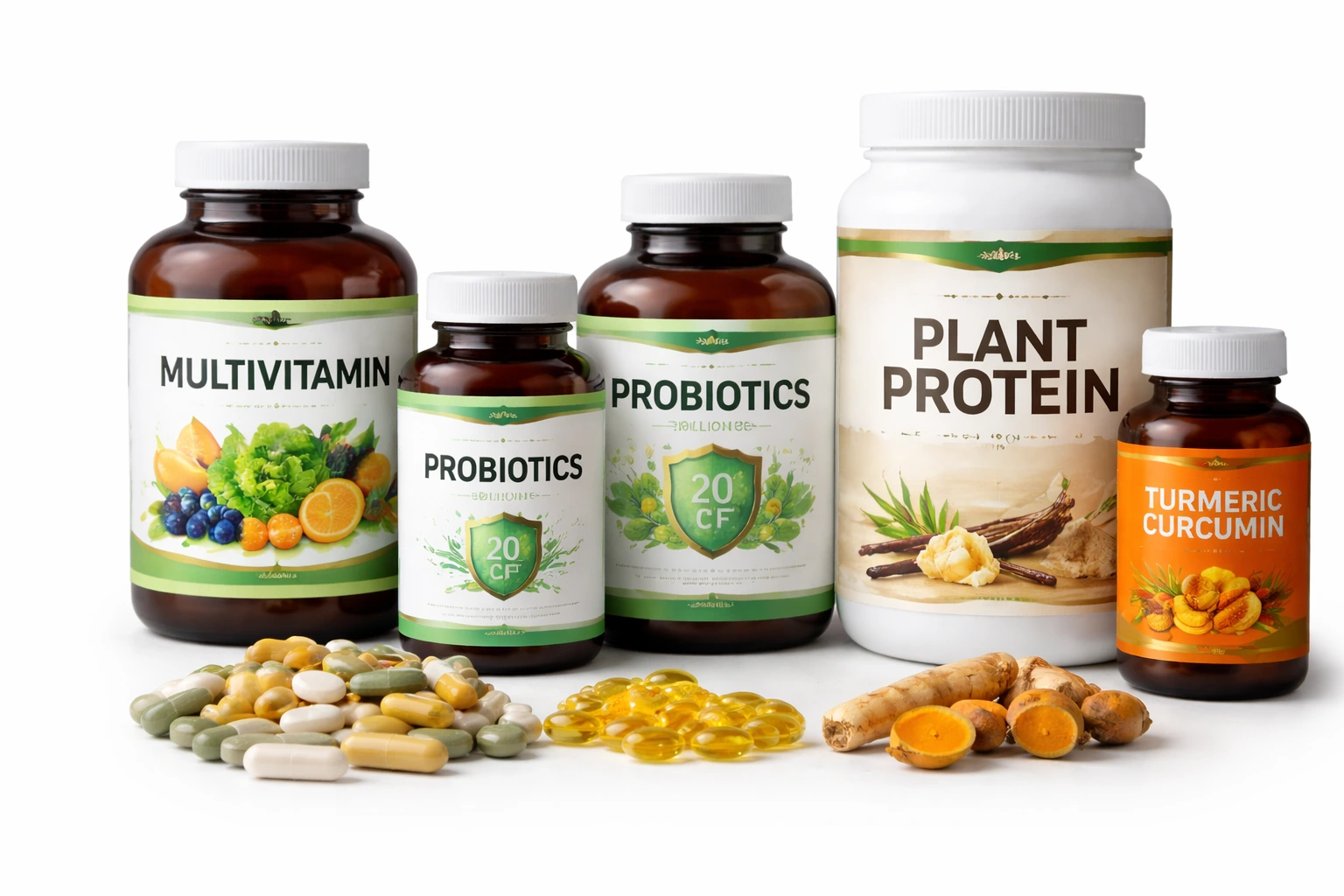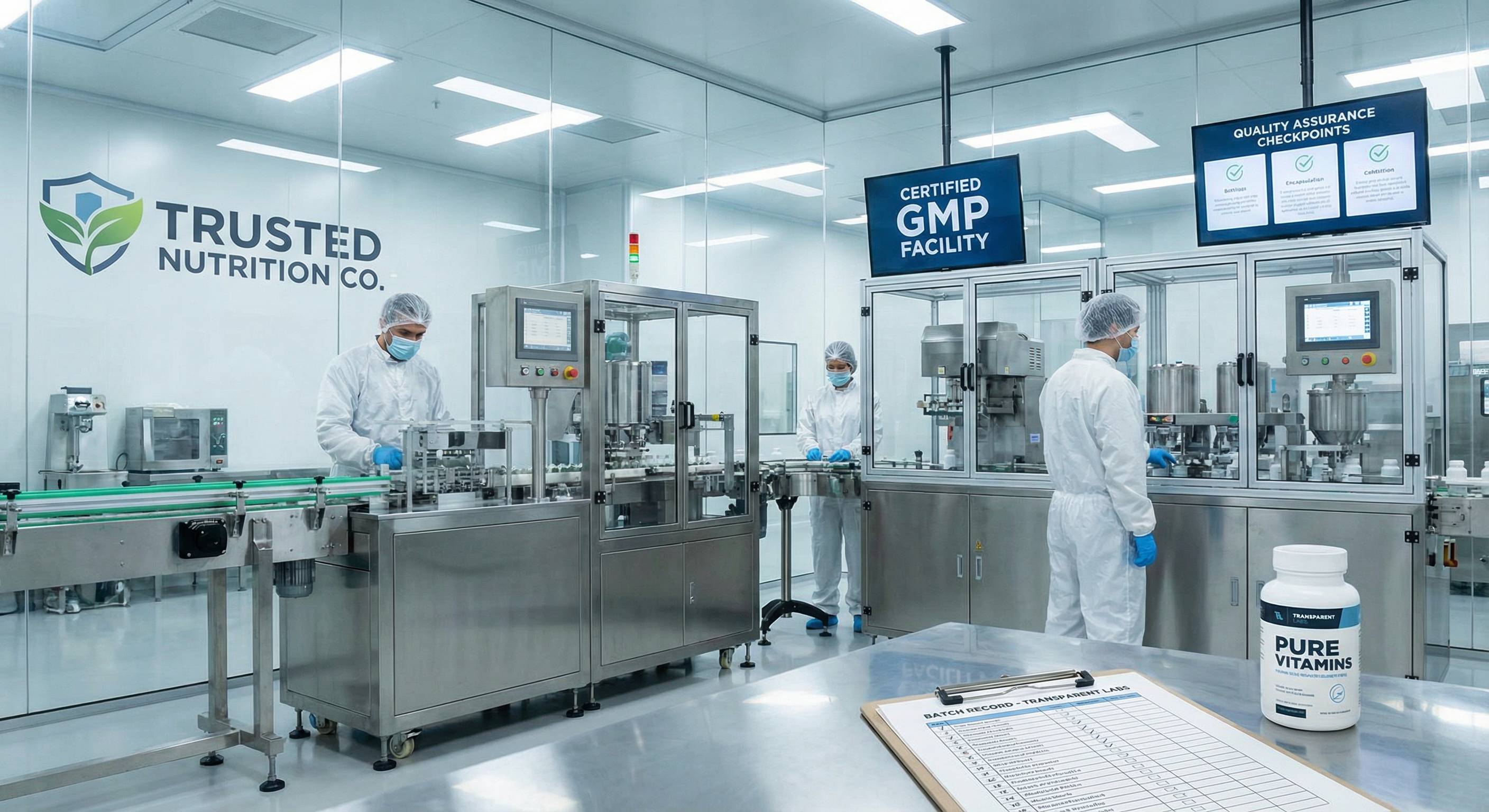When people start searching for the best CoQ10 supplement, what they often look for is more than just another capsule on the shelf. Coenzyme Q10, or CoQ10, is a naturally occurring antioxidant that plays a vital role in energy production within cells, especially in the heart and muscles. As people age, the body’s natural production of CoQ10 declines, which has led to a growing demand for high-quality supplements to support cardiovascular health, energy metabolism, and overall vitality.
At ZOOMSHEAL Health, we specialize in creating science-backed nutritional supplements, offering contract manufacturing (OEM & ODM) services for global brands. This hands-on perspective gives us a unique understanding of what makes a CoQ10 supplement truly effective and trustworthy. From raw material sourcing to advanced encapsulation technology, every detail matters when producing a supplement that customers can genuinely rely on.
Choosing the best CoQ10 supplement is not only about dosage or form—it’s about the integrity of the entire process. Consumers today care about purity, bioavailability, and whether the supplement they buy is manufactured under strict quality standards. As a professional dietary supplement manufacturer, we see first-hand how small differences in formulation or delivery method can make a big impact on results.
Understanding CoQ10 and Its Role in the Body
Coenzyme Q10 (CoQ10) is a naturally occurring compound found in every cell of the human body. It plays a key role in producing energy within the mitochondria—the tiny powerhouses of our cells—and also functions as a potent antioxidant. Because of its dual role, CoQ10 supports both cellular energy production and protection against oxidative stress.
Levels of CoQ10 naturally decline with age, and certain health conditions—such as heart disease, diabetes, or neurodegenerative disorders—are linked to lower CoQ10 concentrations. This decline can result in fatigue, muscle weakness, or a general decrease in vitality. For this reason, CoQ10 supplementation has gained popularity among individuals seeking to boost energy, support cardiovascular health, and maintain overall well-being.
Another important aspect of CoQ10 is its relationship with statin medications, which are commonly prescribed to lower cholesterol. While effective, statins may reduce natural CoQ10 levels in the body, leading many physicians to recommend supplementation for patients on long-term statin therapy.
The market for CoQ10 supplements has grown significantly in response to these health needs, with a wide variety of formulations available. But finding the best CoQ10 supplement depends on understanding the differences between types, their absorption rates, and what makes one product stand out from another.
The Benefits of CoQ10 for Health
Coenzyme Q10 plays a vital role in cellular energy production, particularly within the mitochondria—the "powerhouse" of the cell. Adequate levels of CoQ10 help the body maintain energy, support cardiovascular function, and protect cells from oxidative damage caused by free radicals. Research has shown that CoQ10 may benefit individuals experiencing fatigue, muscle weakness, or decreased exercise capacity by enhancing energy metabolism.
Another key benefit is its strong link to heart health. CoQ10 supplementation has been widely studied for supporting healthy blood pressure, improving circulation, and assisting people taking statin medications. Statins, while effective at lowering cholesterol, often reduce natural CoQ10 levels in the body. Supplementation can help restore balance, reduce muscle pain associated with statin use, and promote overall cardiovascular resilience.
Emerging evidence also points to CoQ10’s role in supporting cognitive health. By boosting mitochondrial activity and reducing oxidative stress, CoQ10 may help protect brain cells and slow age-related decline in memory and focus. This makes it an attractive supplement for individuals who want to support both physical stamina and long-term mental clarity.
Different Types of CoQ10 Supplements
CoQ10 is available in two main forms: ubiquinone and ubiquinol. While both forms provide health benefits, they differ in bioavailability and how the body uses them.
-
Ubiquinone is the oxidized form of CoQ10 and has been used in supplements for decades. Once consumed, the body must convert ubiquinone into ubiquinol before it can be effectively utilized. This form is often more affordable and widely available in dietary supplements.
-
Ubiquinol is the reduced, active antioxidant form of CoQ10. Because the body does not need to convert it, ubiquinol is considered more bioavailable and easier to absorb, especially for older adults or individuals with impaired absorption. Clinical research suggests that ubiquinol may provide more efficient support for heart health and energy production compared to ubiquinone.
In addition to form, delivery method also matters. CoQ10 supplements are commonly found in:
-
Softgel capsules, often combined with oils to improve absorption.
-
Powder-filled capsules or tablets, which are convenient but may have lower bioavailability.
-
Liquid and chewable formats, which can be easier to take for individuals who dislike swallowing capsules.
Some advanced formulations include liposomal CoQ10 or nanoemulsified CoQ10, designed to enhance solubility and absorption. Choosing the right form depends on individual needs, age, health conditions, and budget.
Choosing the Best CoQ10 Supplement: What to Look For
With so many options available, knowing how to choose the best CoQ10 supplement can save you from wasting money and ensure you get the right product for your needs. Here are some key factors to consider:
-
Form of CoQ10
-
Ubiquinone vs. Ubiquinol: Ubiquinol is the reduced, active antioxidant form of CoQ10, which is more easily absorbed by the body. Ubiquinone is the oxidized form that your body converts into ubiquinol. For individuals over 40 or those with absorption issues, ubiquinol may offer greater benefits.
-
-
Absorption Technology
CoQ10 is fat-soluble, meaning it requires dietary fat for proper absorption. Many high-quality supplements use advanced delivery systems such as softgels with added oils (like olive or MCT oil) or specialized formulations like micellization to improve bioavailability. -
Dosage
The right dosage depends on your health needs. General wellness doses range from 100–200 mg per day, while higher doses (300–600 mg daily) are often recommended for specific health conditions under medical supervision. -
Purity and Testing
Look for brands that are third-party tested for quality, potency, and purity. Supplements free from unnecessary fillers, artificial colors, and allergens are usually a better choice. -
Reputation of the Brand
Companies specializing in science-backed formulations and GMP-certified manufacturing facilities are typically more reliable. This ensures safety and consistency across batches.
By paying attention to these factors, you can better navigate the crowded supplement market and select a CoQ10 product that aligns with both your health goals and budget.
Choosing the Best CoQ10 Supplement
When comparing different CoQ10 supplements, several factors can help determine the best option for your needs. One key consideration is the form of CoQ10 used. Ubiquinone is the traditional form, while ubiquinol is a reduced version that may be absorbed more efficiently in some individuals, particularly older adults or those with compromised absorption. Some studies suggest ubiquinol may raise blood levels of CoQ10 more effectively, but both forms can be beneficial depending on individual circumstances.
Another important factor is the delivery system. Since CoQ10 is fat-soluble, supplements combined with oils such as MCT or olive oil may offer better absorption than dry capsules or tablets. Softgel formulations are particularly popular because they often incorporate oil-based carriers that improve bioavailability.
The dosage is also worth considering. For general wellness, 100–200 mg per day is common, while individuals with specific health conditions, such as cardiovascular concerns, may require higher amounts under professional supervision. It's always advisable to consult with a healthcare provider before adjusting dosages.
Product quality and sourcing matter significantly. Supplements manufactured under strict quality standards and tested for purity provide greater confidence. Brands that emphasize third-party testing, clear labeling, and clean formulations—avoiding unnecessary fillers—are often a more reliable choice.
Health Benefits of CoQ10
CoQ10 plays a central role in cellular energy production. By participating in the electron transport chain within mitochondria, it helps convert nutrients into ATP, the body’s main energy currency. Adequate CoQ10 levels support physical stamina, muscle function, and overall vitality. People with low CoQ10 levels—whether due to aging, illness, or certain medications—may experience fatigue or reduced exercise capacity, highlighting the importance of maintaining sufficient CoQ10 in the body.
Cardiovascular health is another area where CoQ10 shows significant potential. Research indicates that CoQ10 may help support healthy blood pressure, improve endothelial function, and enhance heart muscle performance. In individuals taking statin medications, which can reduce natural CoQ10 production, supplementation has been linked to reduced muscle pain and improved energy levels, reinforcing its supportive role in heart and metabolic health.
CoQ10 also acts as a powerful antioxidant, protecting cells from oxidative stress. Oxidative stress contributes to aging and the progression of various chronic diseases, including neurodegenerative disorders. By neutralizing free radicals, CoQ10 helps maintain cellular integrity, supports mitochondrial health, and may contribute to preserving cognitive function and overall resilience against age-related decline.
Beyond heart and energy metabolism, emerging research suggests that CoQ10 may benefit skin health, immune function, and metabolic balance. Its antioxidant properties help combat cellular damage caused by environmental stressors, while energy-supporting roles may influence metabolism and general physiological efficiency. While studies are ongoing, these findings collectively highlight CoQ10 as a multifunctional nutrient that supports overall well-being at multiple biological levels.
Safety and Considerations for CoQ10 Supplementation
CoQ10 is generally well-tolerated, and most individuals can use it without significant side effects. Mild gastrointestinal symptoms, such as nausea, diarrhea, or loss of appetite, are occasionally reported, particularly when taking higher doses. Starting with a lower dose and gradually increasing can help reduce these effects.
Certain populations should exercise caution. Individuals taking blood-thinning medications, such as warfarin, may need to monitor their dosage and consult a healthcare provider, as CoQ10 could influence clotting. People with chronic health conditions, pregnant or breastfeeding women, and those undergoing surgery should seek professional advice before beginning supplementation.
Interactions with other medications are relatively uncommon but still important to consider. CoQ10 may have mild effects on blood sugar levels and blood pressure, so those with diabetes or cardiovascular conditions should monitor their health when introducing a new supplement.
It’s also important to choose high-quality CoQ10 supplements. Products manufactured under Good Manufacturing Practices (GMP) and third-party tested for purity and potency are more reliable, ensuring that consumers receive the intended dosage without unwanted contaminants. Pairing CoQ10 supplementation with a balanced diet, regular physical activity, and healthy lifestyle practices maximizes its potential benefits while maintaining overall safety.
Practical Takeaways and Company Insight
CoQ10 serves as a critical component for maintaining energy, supporting cardiovascular function, and protecting cells from oxidative stress. Ensuring adequate levels through supplementation can be particularly valuable for aging adults, individuals on statin therapy, or those experiencing fatigue and reduced vitality. Maintaining a healthy lifestyle—including balanced nutrition, regular exercise, and sufficient sleep—complements CoQ10 supplementation and enhances its overall effectiveness.
At ZOOMSHEAL Health, we specialize in producing high-quality nutritional supplements, offering both OEM and ODM services for global brands. Our expertise in sourcing premium ingredients, combined with advanced manufacturing processes, allows us to create CoQ10 supplements that are both effective and safe. By adhering to strict quality control and third-party testing standards, we ensure that every product delivers consistent results and meets consumer expectations for purity, potency, and bioavailability.
Incorporating CoQ10 into a daily wellness routine should be approached thoughtfully. Assessing individual health needs, choosing a reliable supplement form, and monitoring dosage are essential steps to maximize benefits. With science-backed ingredients and responsible lifestyle practices, CoQ10 can support energy metabolism, heart health, and cellular protection, helping individuals maintain overall vitality.
References
The information presented in this article is based on current scientific research and authoritative health resources:
-
National Institutes of Health (NIH) – Office of Dietary Supplements. Coenzyme Q10 Fact Sheet.
-
Mayo Clinic. Coenzyme Q10 (CoQ10) Overview and Health Benefits.
-
Journal of Clinical Biochemistry and Nutrition – Clinical studies on CoQ10 supplementation and cardiovascular health.
-
Nutrients Journal – Research on CoQ10, mitochondrial function, and antioxidant activity.
These sources provide credible, evidence-based information on CoQ10, its biological role, health benefits, supplementation, and safety considerations. They can be consulted for further details and in-depth study.






